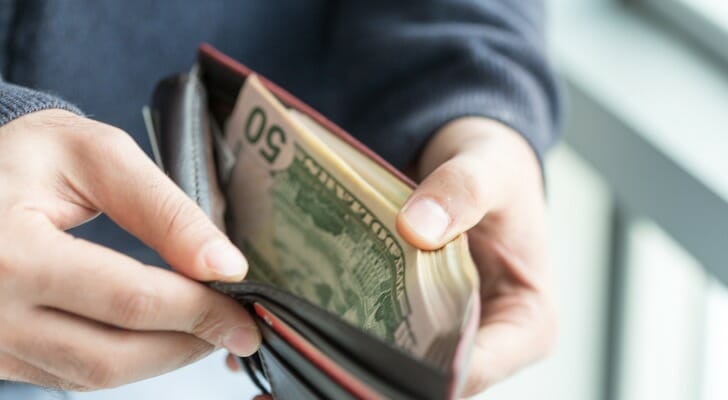Buying low and selling high isn’t the only way to make money in the stock market. Investing in companies and mutual funds that pay out dividends to shareholders is another popular strategy that can grow a portfolio and generate investment income. Dividends are a way that companies and mutual funds transfer profits to shareholders, rewarding them for their investment. Most companies pay dividends as cash, but some distribute dividends in the form of new shares of stock. While cash dividends afford stockholders an immediate payout, stock dividends give shareholders much more flexibility to sell when they want.
A financial advisor can help you invest in assets that generate additional income through dividends.
What Is a Cash Dividend?

Like the name implies, a cash dividend is a payment of cash that a company makes to its shareholders. Rather than reinvesting profits into the business, cash dividends allow a company to redistribute a portion of its earnings to investors to reward them for owning shares.
These dividends are typically paid on a per-share basis, meaning a shareholder receives a set amount of money for every share they own. For example, if an investor owns 100 shares of a stock that pays a cash dividend of $0.25 per share, the shareholder would receive an extra $25 from the company.
But since cash dividends transfer capital from a company to shareholders, they reduce the amount of money the company has on hand. If the hypothetical company in the example above had 10 million outstanding shares, its market capitalization would fall by $2.5 million as a result of the cash dividends it paid to shareholders. Cash dividends also affect the company’s stock price by approximately the same amount as the distribution. If the company in the example above issued a $0.25 dividend for every share owned by investors, its share price would likely fall by the same amount.
Dividend-producing stocks and mutual funds create an extra stream of income within an investment portfolio. However, it’s important to remember that these cash distributions are taxed. How much an investor owes to the IRS on their cash dividends depends on how long they’ve owned the underlying asset. Cash dividends are taxed either at the ordinary income tax rate or a reduced, qualified dividend rate of 0%, 15% or 20%. To qualify for a reduced tax rate, the shareholder must own the asset for more than 60 days during the 121-day period that begins 60 days prior to the ex-dividend date.
What Is a Stock Dividend?
A stock dividend is a way for companies to reward investors by granting them more shares of stock. While cash dividends offer an immediate financial incentive for investing in a particular company or mutual fund, stock dividends increase a shareholder’s ownership stake in the company by increasing the number of shares they own.
Like cash dividends, stock dividends can affect a company’s stock price. While the overall value of the company remains the same, stock dividends increase the number of shares that exist, resulting in a slightly diluted stock price. For example, if a company with a market capitalization of $1 billion and 10 million outstanding shares issued a 10% stock dividend, it would increase the number of shares that exist by 1 million shares. However, the value of the company would remain the same. That would mean the price of the stock would tick down by roughly 10% because there are 10% more shares in existence.
While cash dividends are more common, a company that is short of cash may use stock dividends as a way to attract additional investment and keep current shareholders happy.
Stock Dividend vs. Cash Dividend: Which Is Better?

Determining whether a stock dividend or a cash dividend is better depends on an investor’s preferences, financial goals, and tax considerations. Each option has distinct advantages and drawbacks.
Cash Dividends: Immediate Income with Tax Considerations
Cash dividends provide immediate income, making them attractive to investors who prefer regular payouts. They are commonly issued by well-established, stable companies rather than growth-oriented businesses. However, cash dividends are subject to taxation in the year they are received. The tax rate depends on how long the investor has held the stock or mutual fund distributing the dividend.
Stock Dividends: Potential for Long-Term Growth
Stock dividends, on the other hand, may be more valuable for investors focused on long-term growth. Instead of receiving a cash payout, shareholders receive additional shares of stock, which could appreciate in value over time. Unlike cash dividends, stock dividends are not immediately taxable. Taxes only apply when the shares are eventually sold, providing more flexibility in managing capital gains.
Taxation: When Are Dividends Taxed?
One of the biggest differences between stock and cash dividends is the timing of taxation:
- Cash dividends are taxed in the year they are received.
- Stock dividends are not taxable until sold, unless they come with a cash option, making them more tax-efficient than cash dividends.
This tax deferral can be advantageous for investors looking to manage their taxable income over time. While some stock dividends require shareholders to hold new shares for a set period, others offer the option to convert them into cash.
Impact on the Company and Shareholders
From a company’s perspective, stock dividends allow businesses to reward shareholders and encourage further investment without depleting cash reserves. This can be beneficial for companies facing liquidity challenges. However, issuing stock dividends results in share dilution, meaning that each shareholder owns a slightly smaller percentage of the company.
Bottom Line
Dividends are the cash or stock distributions that some companies and mutual funds pay to shareholders. While cash dividends result in immediate cash payments to shareholders, stock dividends increase the number of shares that investors in a company or fund own.
Cash dividends may be preferred among income investors, but will require taxes to be paid. Meanwhile, stock dividends can be more valuable in the long run, especially if the company that issued them continues to grow. Stock dividends are also not taxable, unless they come with a cash option, making them more tax-efficient than their counterpart.
Tips for Managing Your Portfolio
- When it comes to picking investments and managing your portfolio, you don’t have to go it alone. A financial advisor can help you select an appropriate asset allocation and regularly rebalance your portfolio to keep you progressing toward your goals. Finding a qualified financial advisor doesn’t have to be hard. SmartAsset’s free tool matches you with financial advisors who serve your area, and you can have a free introductory call with your advisor matches to decide which one you feel is right for you. If you’re ready to find an advisor who can help you achieve your financial goals, get started now.
- How much of your money is invested in stocks versus bonds depends on a variety of factors, including your tolerance for risk. SmartAsset’s allocation calculator will help you determine how your assets should be spread across stocks, bonds and cash.
Photo credit: ©iStock.com/AndreyPopov, ©iStock.com/cnythzl, ©iStock.com/kupicoo
